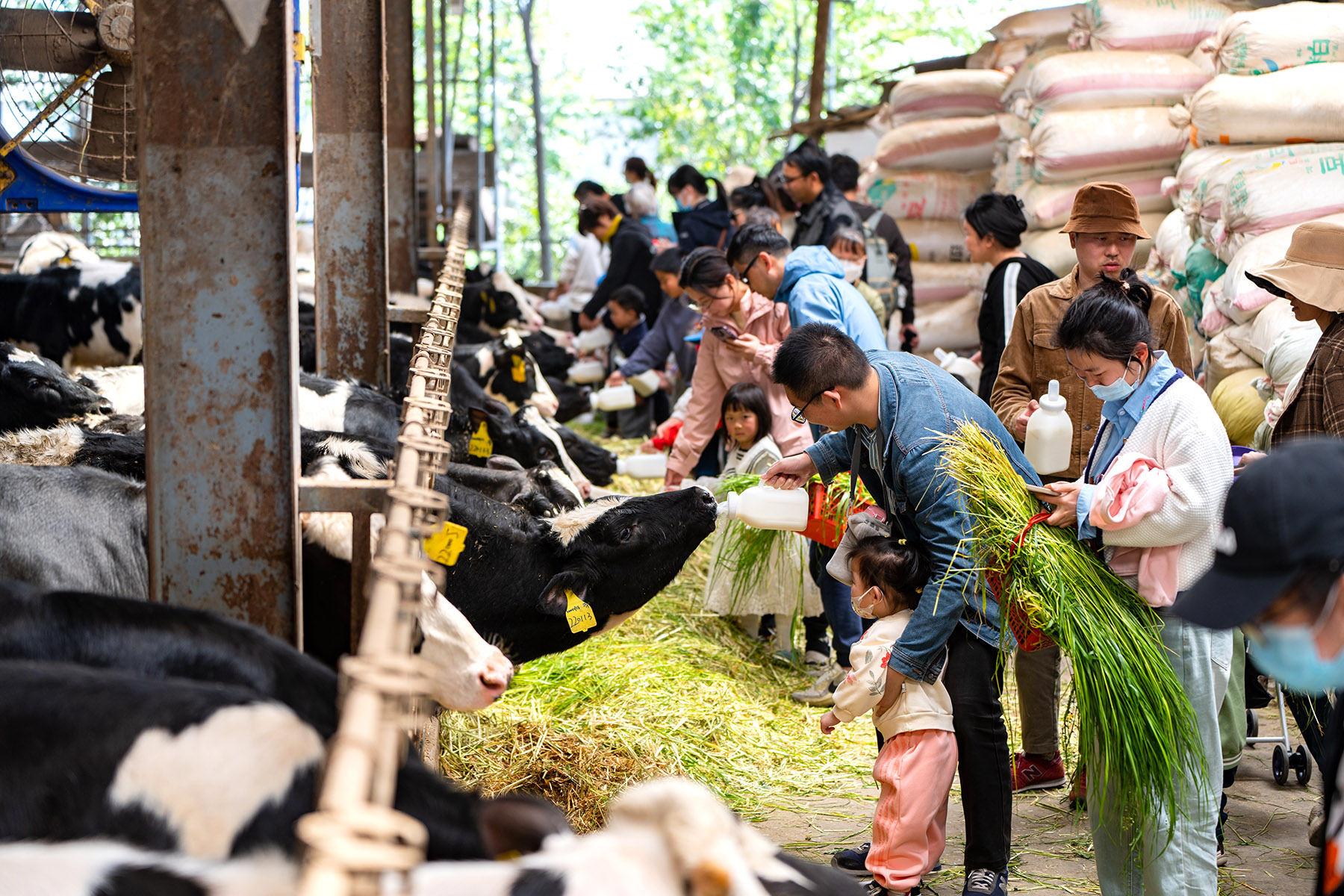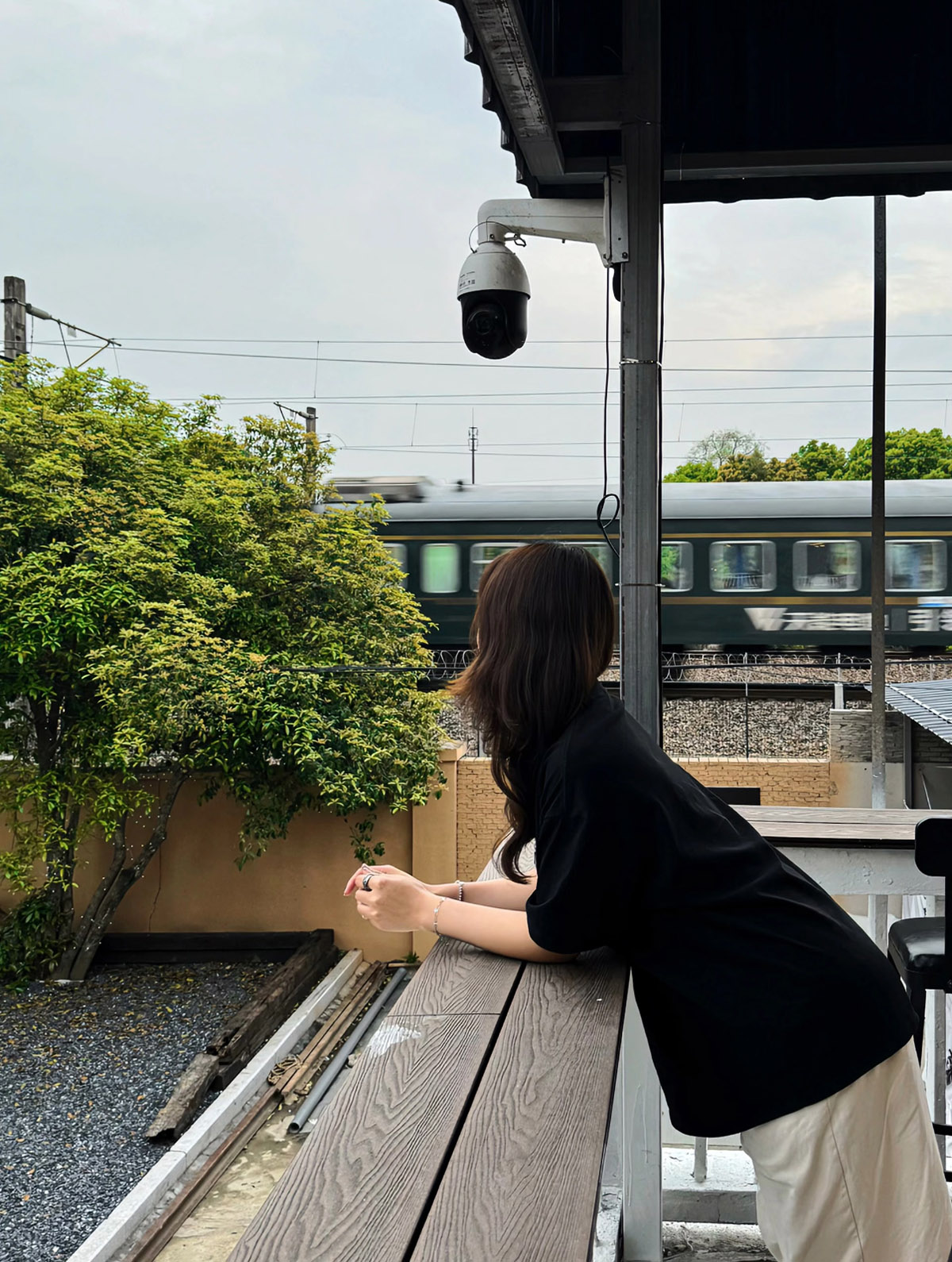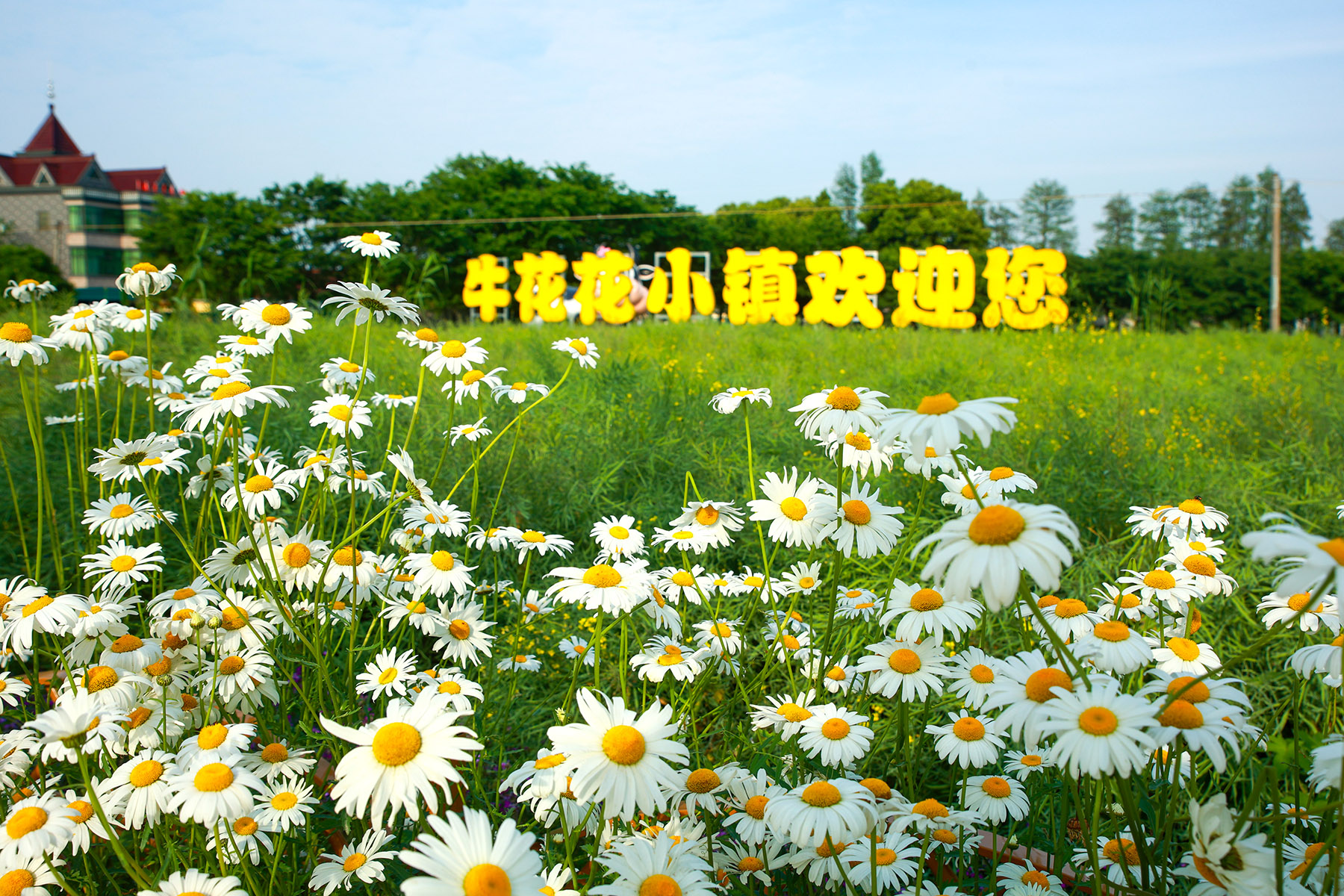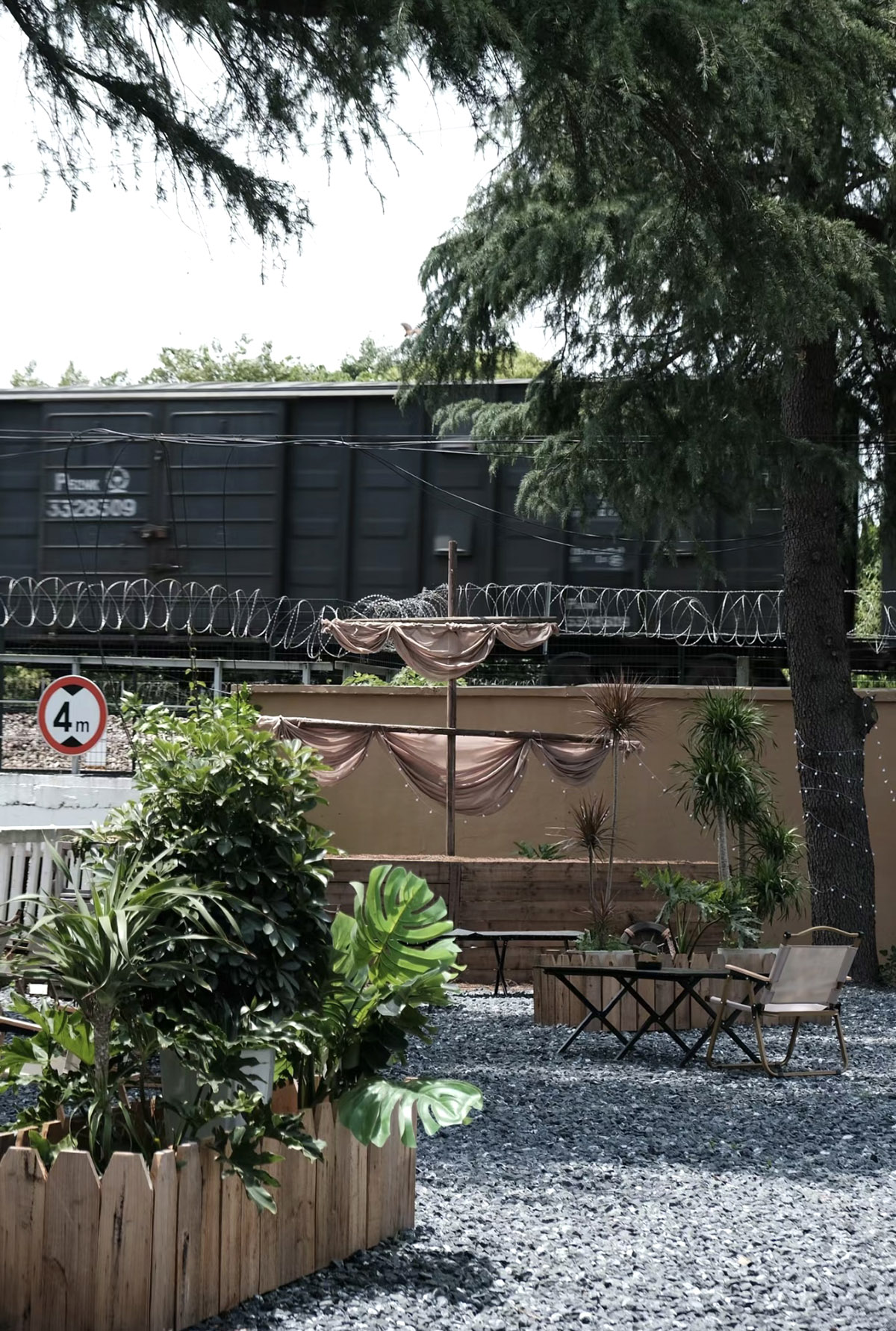Urban families seeking meaningful escapes are helping transform once-quiet villages into thriving hubs of activity, Yang Feiyue reports.

Gu Dongxing once lay awake at night, worrying about a 100,000-yuan ($13,940) bank loan.
Today, the 50-something farmer from East China's Zhejiang province casually discusses his 30-million-yuan investment in a state-of-the-art dairy facility set to launch this September.
"Doesn't even keep me up anymore," he jokes. That once-unthinkable sum is now just another number in his ambitious vision.
At his Dongxing dairy farm in Honglian village in Wangdian town, Xiuzhou district of Jiaxing city, just an hour's drive from Shanghai, the contrast couldn't be sharper.
Just a few years ago, Gu was struggling in a faltering industry. The warning signs were clear. At a 2024 dairy industry forum, Li Shengli of the Dairy Association of China revealed plunging profit margins, noting that 2024's milk oversupply crisis dwarfed that of the previous year.
Yet, Gu's calm confidence about his major investment points to a carefully calculated bet. The epiphany came during the pandemic, when city dwellers craving rural escapes transformed his pastures into an unlikely tourist hot spot.
"We sold 10-yuan hay-feeding experiences that cost us 1 yuan," Gu recalls, eyes crinkling at the memory of children's delighted squeals during milking sessions and families picnicking among grazing cows. What began as survival became a salvation — and the blueprint for his 30-million-yuan transformation.
Opening the barn doors to curious visitors quickly turned into a revelation. As guests returned, often bringing friends and relatives along, Gu realized they weren't just coming for the milk.
"They were clearly coming for the experience," he says.

Local authorities had already been stepping up rural development efforts. With modern infrastructure, cleaner environments, green belts, and picturesque farmlands, the village emerged as a popular weekend retreat for urbanites.
He Linfeng, Party secretary of Honglian village, sees Gu's success as part of a broader rural vitalization.
"Our village was fragmented — scattered farmland, aging infrastructure," He explains.
"But with the high-speed rail station just a few kilometers away, we had an opportunity."
With local reform, dispersed plots were merged into large, scenic fields, including rainbow-colored rapeseed blossoms developed with the help of provincial agronomists. Local husbandry operations have adapted to strict green development standards.
During holidays, Honglian receives up to 30,000 visitors per day, boosting sales of free-range chicken, fresh milk, and other local products.
Those changes made Gu all the more convinced to take the plunge to invest in the upcoming new facility that includes high-standard cow sheds, a milking hall, and a dairy culture exhibition hall.
"Actually, it was a family decision," he says.
The goal is to upgrade from traditional dairy farming to smart, data-driven management. The facility also aims to become a leading cattle breeding base in the Yangtze River Delta, integrating agriculture, animal husbandry, and cultural tourism.
"We've installed an enclosed emission-reduction system in the sheds, which is expected to cut odor emissions by over 70 percent and improve surrounding air quality," Gu says.

Now, laughter mingles with the warm, earthy scent of hay at his farm, as children, whose hands often sticky with ice cream, giggle while bottle-feeding calves, which poke their heads through the rails of their pens. Just steps away, a line forms outside the dairy shop for fresh milk, yogurt, and smoothies made from the morning's milking.
This scene has become a daily rhythm at the farm, which has transformed into a thriving agritourism destination.
At peak times like May Day and National Day, the farm receives up to 6,000 visitors a day, Gu explains.
"Our highest single-day revenue has surpassed several hundred thousand yuan," he says.
Gu is among many local residents in rural Xiuzhou launching creative rural businesses as villages grow increasingly appealing to travelers.
About a 20-minute drive away, Shou Lingyi's Daoshang Bistro is packing in curious visitors from far and wide.
At the facility offering coffee and pizza that the 30-year-old opened last year in Zhenzhong village, Wangdian town, patrons pause mid-sip to watch a vintage green locomotive rumble past just meters away. This fusion of specialty coffee and nostalgic rail travel has become the bistro's signature draw.
Shou's journey began in 2015, when she was a corporate trainer dreaming of opening a cafe. After years of planning and a pandemic-induced delay, she and her business partner made a bold decision in 2022: abandon the oversaturated urban cafe scene.
"We realized the market was saturated with copycat coffee shops, while villages are becoming popular getaways, where it is much cheaper to start a business," Shou recalls.

Their search led them to a derelict 1950s railway staff quarters in the village, where they spent 14 months negotiating for the property and another five months transforming the overgrown site.
The preserved retro architecture now houses a light-filled cafe, complete with mismatched vintage furniture and a honeycomb-paneled bar built by a local craftsman.
When she shared the renovation on social media Xiaohongshu, or Red-Note, followers eagerly asked when it would open.
Despite its remote location, Daoshang Bistro achieved remarkable daily revenues of 17,000-18,000 yuan in its first few months.
Urban visitors from Shanghai, Zhejiang's provincial capital Hangzhou and beyond have made the pilgrimage.
"There's something magical about watching a train pass while sipping your latte," Shou says, echoing customer feedback.
Motorcycle clubs have become major clients, making up nearly 40 percent of weekend business.
Looking ahead, Shou plans to expand into the cafe's 2,000-square-meter backyard, turning it into a pet-friendly area with dog pools and self-service pet washing.
"Just imagine how happy it will be for people to swim with their pets," she says.
More urban dwellers are discovering the charm of China's countryside, where tradition blends with modern lifestyle.
According to the Ministry of Culture and Tourism, in the first quarter, rural tourism across the country received a total of 707 million visits, marking an 8.9 percent year-on-year increase. Total revenue from rural tourism reached 412 billion yuan, up 5.6 percent from the same period last year.
ALSO READ: Researchers work to reduce emissions in dairy industry
Urban families seeking meaningful escapes are helping transform these once-quiet villages into thriving hubs.
Liu Xing, a mother from downtown Jiaxing, is one of them. She brings her daughter to the countryside to experience nature.
This summer marks her second visit to Dongxing dairy farm.
"The first time we came, my daughter had just turned one and was still a bit timid," Liu says, gently helping the now 18-month-old feed milk to a calf.
"This time, she's much more curious and daring. It's a joy to watch her interact with animals like this."
It is a contrast to life in the city, where her family mostly ends up at malls for leisure.
Liu is already planning future rural trips.
"When she's older, we'll take her fruit picking, camping, and to places where she can learn where our food and traditions come from," she says.
Contact the writer at yangfeiyue@chinadaily.com.cn


